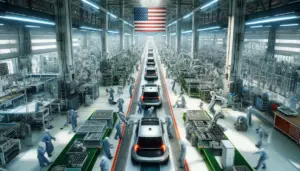Safely Reopening New York’s Art Venues in a Pandemic
On the Digital Threshold podcast, industry leaders will provide insights regarding how modern venues and facilities are reimagining the arrival experience – and how innovations are elevating that journey.
In this debut episode, three guests with firsthand experience in reopening New York City for business in the wake of the COVID-19 pandemic joined host Anil Chitkara for a discussion on what they’ve learned from that experience and how those lessons might help craft future-proof best practices at the intersection of venues and technology.
Keith Prewitt, Chief Security Officer at the Metropolitan Museum of Art, Lisa Schroeder, Director of Finance at Lincoln Center, and Thomas Slade, Senior Security Director at the American Museum of Natural History, help oversee institutions that account for about 16 million visitors during a typical year. That makes each extremely qualified to provide useful tips and strategies for engaging in a successful reopening.
The three venues were part of a cultural consortium of sorts that helped spread best practices and strategies that were working as the pandemic progressed.
“I think one thing we all feel in New York City is the strong sense of community,” Schroeder said. “We all want to places to open, and we all want to be safe. We take a lot of pride in that.”
While each individual space required its own unique strategy for adapting to the constraints of the pandemic, one thing was shared – a need for agility. Many venues didn’t expect the pandemic to linger as long as it has, and that required continuous work to remain flexible in the face of a shifting environment and regulatory pressure.
Specific technologies have also played a role, from thermal scanners and contact tracing methods to enhanced entrance screening and more. One of the most critical aspects, the trio said, was to thoroughly vet vendors who might have rushed to market to capitalize on the pandemic and uncertainty.
Twitter – @MarketScale
Facebook – facebook.com/marketscale
LinkedIn – linkedin.com/company/marketscale







